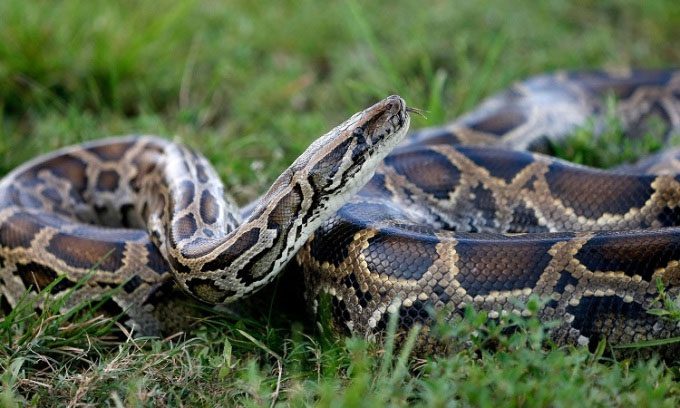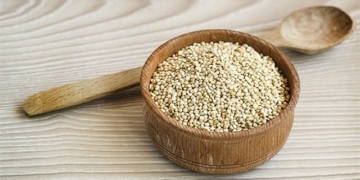Recent research indicates that python meat could be a source of high-quality and sustainable protein as the global agriculture sector faces numerous challenges.
A new study published in the journal Scientific Reports on March 14 reveals that farmed python meat may serve as an alternative to common meats as food supplies become increasingly threatened by environmental changes. The research team analyzed the growth rates of the reticulated python and the Burmese python in farms in Thailand and Vietnam, noting that they grow quickly over the course of a year despite consuming less food than other livestock.

Burmese python meat is a sustainable food source. (Photo: Rhona Wise).
“Diseases, resource fluctuations, climate change, and sustainability issues… are leading to the failures of current agricultural systems. We need to feed the planet while high-quality protein is a limited resource. Pythons possess many characteristics that help us respond to and mitigate those challenges,” said Daniel Natusch, co-author of the study and an expert at Macquarie University, Australia.
Python meat has been consumed in various parts of the world, particularly in some Asian countries where it is considered a culinary delicacy, but the scale of farming remains small. “Billions of people around the world view python as a culturally acceptable meat source. Only Western countries do not,” Natusch noted.
“For many people, there is no issue with eating python. For others, they need to try it and assess. Like any food, some will like it, while others will not. But if we are truly serious about making the planet more sustainable, they should consider eating python instead of beef or chicken,” he added.
To investigate python farming, Natusch and his colleagues studied 4,601 pythons. They were fed various prey such as rodents and fish meal each week. Their growth was also measured regularly over the course of a year. Subsequently, the experts performed euthanasia on them. The results showed that the pythons gained an average of up to 46 grams per day, with females growing faster than males.
Furthermore, the team found that for every 4.1 grams of food consumed, 1 gram of python meat could be harvested. Even pythons that did not eat anything for 20 to 127 days experienced minimal weight loss. All these findings indicate that python meat is a very sustainable food option.




















































